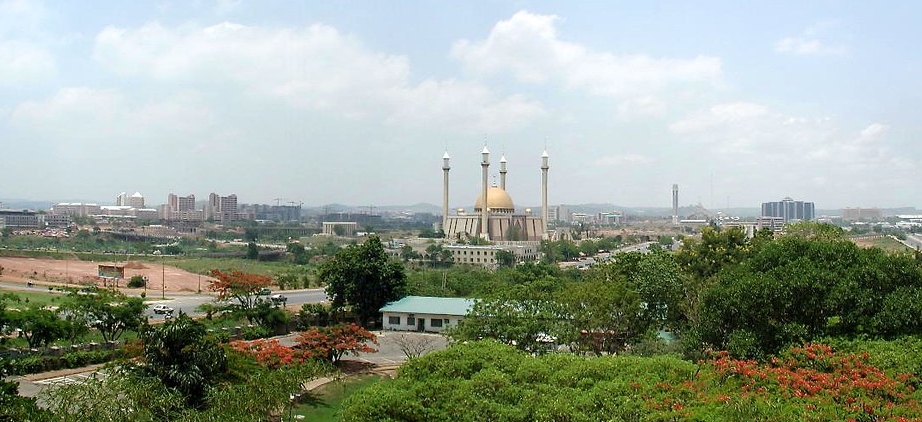Sources at the African Development Bank (AfDB) have told pv magazine the Nigerian government is attempting to persuade investors in solar projects with more than 1 GW of generation capacity to accept reduced payments for the energy they would generate.
The government of the populous West African state – via its Nigerian Bulk Electricity Trader energy offtaker body – signed power purchase agreements (PPAs) three years ago to buy power from 14 projects across the north of the nation with capacities ranging from 50-100 MW.
AfDB sources have claimed the Nigerian government now feels the price agreed for the solar power generated by the projects is too high and wants to persuade investors to accept reduced tariffs. The authorities in Abuja reportedly intend to win investors round by offering more comprehensive financial guarantees to safeguard project income against defaulted payments or events such as civil unrest.
pv magazine contacted some of the investors behind the 14 solar projects and learned of their disaffection with the tariff reduction proposal, although nobody was prepared to comment on the record. It is understood none of the solar investors has yet reached agreement with the government.
Investors affected
The biggest six solar projects affected, each with a generation capacity of 100 MW, are backed by Nigerian Solar Capital Partners; Motir Dusable Limited; Nova Solar 5 Farm Limited; Middle Band Solar One; LR Aaron Power; and Anjeed Innova Group. Novia Scotia Power Development Company is behind an 80 MW solar farm facing potentially reduced tariff payments, Pan Africa Solar is backing a 75 MW proposal and a 70 MW scheme is financed by CT Cosmos.
Five smaller, 50 MW facilities are being backed by Afrinegia Power Limited; KVK Power Limited; Oriental Renewable Solutions; Quaint Abiba Power; and EN Africa.
In terms of the incentives that have reportedly been tabled by the authorities, the AfDB and the World Bank would issue partial risk guarantees (PRGs) and put-and-call option agreements (PCOAs).
PRGs insure investments against a range of risks which affect sovereign states or quasi-public organizations and are subject to specific obligations contractually agreed to by a government for a specific project. The types of risk covered can include non-transferability of currency; termination of government payments – such as solar energy tariffs; regulatory risks including changes in the law; and any frustration of arbitration settlements.
Popular content
A PCOA covers almost any circumstance which would lead to a PPA being terminated early and would bind the government to purchase any solar project affected for at least the price of any outstanding payments owed under the PPA.
Insolvency fears
The 14 solar projects affected were intended to help meet the government ambition to install 2 GW of renewable energy generation capacity by next year and have power distribution companies source at least half their electricity from renewables. Although the nation has around 13 GW of installed power generation capacity – mainly in the form of oil and gas plants – only around 5 GW of it is available daily, due to generation and energy transportation constraints.
Around 98 million people in a nation of 191 million lack access to grid electricity and with the nation’s main thermal power plant in the south, solar has the power to provide electricity to under-served areas in the north.
The question of financial guarantees – which raise the cost of developing PV projects – is a tricky one for investors in Nigeria, as a panel discussion at the recent Africa Energy Forum held in Lisbon illustrated.
At an event devoted to Nigeria, panel members Ije Ikoku Okeke, of the Abuja Electricity Distribution Company, and Dolapo Kukoyi, of Detail Commercial Solicitors said the country’s electricity sector is insolvent and must be reset. “As a distribution company, we are waiting for the big reset of the sector,” said Okeke who added, although there is investment in Nigeria’s privatized generation market, the country has not invested enough in networks.
By contrast, Nigeria’s mini-grid sector has seen spectacular progress, with four universities going entirely off grid and the World Bank approving a $550 million loan for the development of such networks in the country.
This article was amended on 29/07/19 to remove the assertion PRGs would definitely insure against civil unrest and to correct the Nigerian population figure to 191 million, from the 98 million previously stated.
This content is protected by copyright and may not be reused. If you want to cooperate with us and would like to reuse some of our content, please contact: editors@pv-magazine.com.


3 comments
By submitting this form you agree to pv magazine using your data for the purposes of publishing your comment.
Your personal data will only be disclosed or otherwise transmitted to third parties for the purposes of spam filtering or if this is necessary for technical maintenance of the website. Any other transfer to third parties will not take place unless this is justified on the basis of applicable data protection regulations or if pv magazine is legally obliged to do so.
You may revoke this consent at any time with effect for the future, in which case your personal data will be deleted immediately. Otherwise, your data will be deleted if pv magazine has processed your request or the purpose of data storage is fulfilled.
Further information on data privacy can be found in our Data Protection Policy.